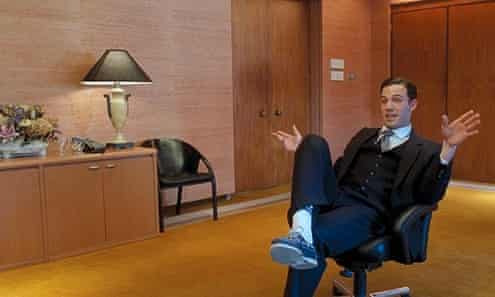Managers are generally well-prepared for the interviewing process, however not even the most experienced ones are immune to gaffes. What’s interesting is that most of these embarrassments are the results of good-intentioned questions that somehow took a negative connotation in the wrong situation. Some of these dos’ and don’ts of the interview process are −
The interview environment must be of professional standards
A well-organized and non-distractible place is most suitable environment for the conduction of a job interview. It is the duty of the Human Resource Department of the recruiting company to develop a well-organized and professionally-aesthetic venue for the good conduct of the interview process. The Human Resource Team should also ensure that, no distraction and interruption is created by the environment of the scheduled venue of the job interview.
Quick reactions are a big NO
Many interviewers can get impatient during the interview process and give quick reactions as soon as they receive an answer from the interviewee. This usually happens when the managers have to interview a large number of candidates within a short window of time.

The interviewer should carefully listen, analyze, judge and react accordingly, after getting a reply from the candidate when the candidate is subjected to a question. The interviewer should emphasize on developing patience, even in time-crunch situations.
Stereotyping and prejudging candidates are violations of ethical norms
It is considered to be immature and naive of an interviewer if s/he tends to prejudge and/or stereotype the candidates into certain categories. This, being ethically incorrect, may result in biased and an unprofessional interview process. Every candidate has his/her own strengths and weaknesses. It is the prime duty of an interviewer to explore the personality of a candidate and discover his capabilities and weaknesses. A stereotyped and/or a prejudged interview process is no better than a random Lucky Draw selection.
The interviewer should seek as much useful information as possible
The most significant duty of an interviewer is to study all the qualities of the candidates. The interviewer, while in the interview process, must empathize with the candidate who is subjected to the interview in the respective position.
In order to do the selection successfully, the interviewer needs to know the entire profile of the candidate. More the information extracted about the candidate, better is the picture created in the interviewer’s mind and easier it is for the interviewer to make a decision.
Most of the talking should be done by the interviewee
The main objective of the interviewer is to observe and analyze the candidate. The interviewer should create situations where the interviewee does the most of the talking. After all, it is the candidates who need to express themselves, and not the interviewer.
There are certain limitations of a CV
An unjust and unprofessional approach to interviewing people is judging candidates on the basis of their CV. An interviewer should always keep in mind that a resume is only the brief reflection of the skills and academic milestones achieved by the candidate. In other words, a candidate makes a CV; a CV doesn’t make a candidate.
An academically-impressive looking candidate may not always do better at work than an academically-low scoring candidate. There may be vital soft skills considerations like good communication, patience, endurance, pressure handling, problem solving, etc. associated with the job profile.
A good interviewer never leads the candidates to reach conclusions
It has been the common tendency of many interviewers to make the candidates say what they want to hear. In order to do so, many interviewers tend to lead candidates into various quick conclusions. These conclusions may prove to be ambiguous and biased. So, the interviewers must avoid leading the candidates into various conclusions.
Jumping hastily to the final decision
Interviewers might have an urge to instantaneously dismiss a candidate if the candidate feels differently than the interviewers. Interviewers should be wary of this. For example, the candidate might have worked for a company that the interviewer dislikes and due to this reason, the interviewer might want to dismiss the candidate. However, from a higher perspective, this practice looks unreasonable and discriminating.
The opposite phenomenon is also true; an interviewer might come to the conclusion that the interviewee has something really appreciable in his/her background, or the interviewer may find the candidate sharing a similar mindset as the interviewer, and the interviewer finds a strong correlation of ideas with the candidate even before the full interview process.
This is a tendency that must be avoided. Contrary to the interviewer’s expectations, a candidate’s behavior may not be the same in real working scenarios. It is a basic property of human nature that we crave to find and like the people who are similar to us. Rather, the HRs must stick to the fact that an effective recruitment process should be beneficial to both the applicant and the company. The interviewer is just a mediator between the company and the candidate. In fact, both the candidate and the company lose in the case of an unfair selection process.


